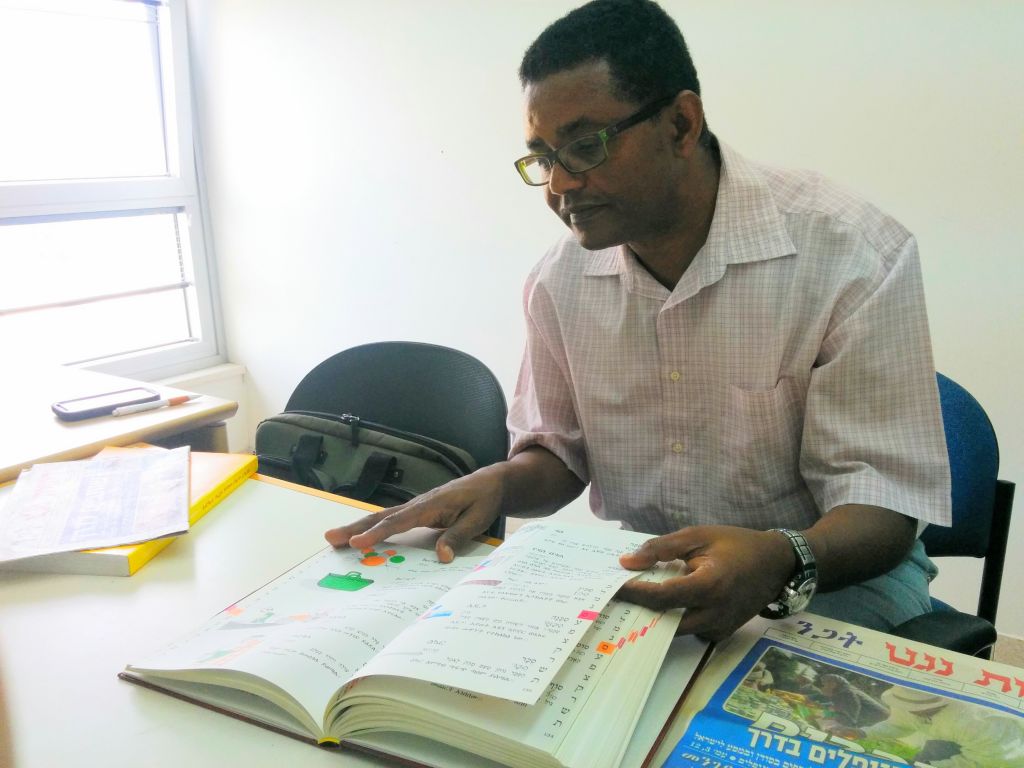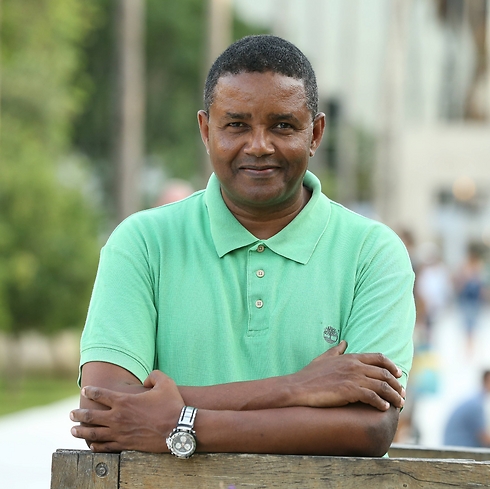Dr. Anbessa Teferra, an expert in Semitic linguistics at Tel Aviv University, last month became the first Ethiopian Israeli to be appointed a senior lecturer at an Israeli university. Teferra’s a soft-spoken, modest academic in his early fifties, quick to laugh and with a talent for languages. He immigrated to Israel in 1990 after completing his master’s degree in linguistics in Addis Ababa and has taught Ethiopian languages in various capacities in Israel since 1993. He earned the rank of senior lecturer, the equivalent of associate professor in the US, in June. “This is one kind of advancement for Ethiopians” in Israel, he said in an interview, in his office overlooking the northeast corner of the campus in Ramat Aviv. “It’s really a great achievement for Ethiopian-Israelis.” He called it a “first step” for the integration of the community in Israeli society. His appointment came during a spate of Ethiopian-Israeli protests against perceived discrimination following the beating of an Israeli soldier of Ethiopian descent by Israeli police officers. Thousands took to the streets in Tel Aviv in May to demonstrate against police brutality and were met with tear gas.
Professor Eyal Zisser, dean of the Faculty of the Humanities at Tel Aviv University, said he was “very proud of being the first faculty of the first university to have an Ethiopian on staff.” He insisted, however, that the decision “had nothing to do with the fact that he’s Ethiopian” and was entirely based on Teferra’s academic merit as an expert of Semitic languages. Teferra teaches Ethiopian languages — Amharic, Ge’ez and Sidama, specifically — at Tel Aviv University. Most Ethiopian Israelis speak Amharic, a very distant cousin on the Semitic language family tree. Although Amharic’s structure is completely different, and the writing system antique and unique, there are some cognates, he explained: the words for blood — dam — and for eye — ayin — are identical in both Hebrew and Amharic.
Teferra’s one of the few academics in Israel to teach Ethiopian languages at the university level. “All the Ethiopian stuff is on my small shoulders,” he said. While his language courses tend to be small, he said that there’s greater interest in his class on Ethiopian history, culture and language, which attracts between 20 and 30 students each semester. For Teferra, the road to professorship was long. He taught for years at Hebrew University in Jerusalem, where he did his PhD, as an external lecturer, before leaving for Tel Aviv. “I should have been a lecturer, even a professor, a long time ago, to tell you the truth,” Teferra said, but didn’t attribute it definitively to race.
“When he’s not teaching at TAU, Teferra works to keep Ethiopian language and culture alive among the community. Like Yiddish, Ladino and so many other languages spoken by first generation immigrants to Israel, the mother tongue has been supplanted by Hebrew among young Ethiopian-Israelis.


